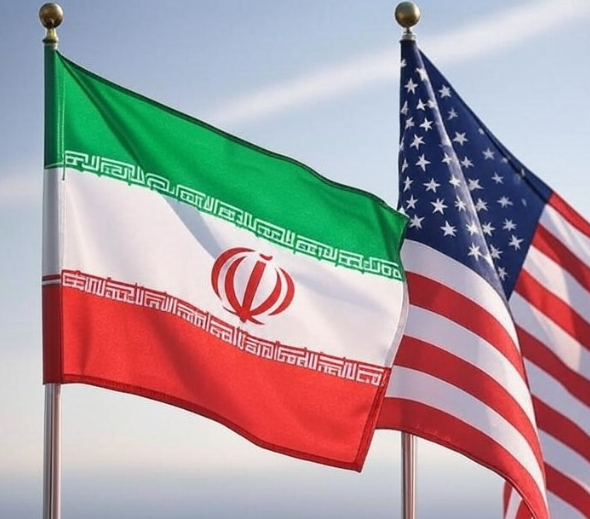U.S-Iran Nuclear Talks:U.S.-Iran Nuclear Talks:As nuclear talks between the U.S. and Iran falter, President Trump has authorized the relocation of American personnel from key West Asian locations amid rising fears of a regional conflict. With Iran threatening to target U.S. bases and Israel reportedly preparing for a possible strike, tensions are reaching a boiling point. The situation highlights the fragile state of diplomacy and the growing risk of escalation in the Middle East.
U.S-Iran Nuclear Talks
The geopolitical landscape in West Asia has grown increasingly volatile as the United States begins moving its personnel out of key locations in the region. President Donald Trump has confirmed that U.S. personnel are being relocated from potentially dangerous zones, citing escalating tensions with Iran and the faltering progress in nuclear negotiations.
The evacuation measures include a reduction of embassy staff in Iraq due to heightened security threats. This was followed by reports of personnel being moved from Kuwait and Bahrain as well. The U.S. maintains several bases in West Asia, the largest of which is located in Qatar. According to a U.S. official, Defense Secretary Pete Hexath has approved the voluntary departure of military dependents from various locations across the region.
These actions are seen in light of growing fears of a regional conflict, especially the possibility of an Israeli military strike on Iran. As a precaution, the UK Maritime Trade Operations, managed by the British Navy, has also issued advisories urging ships to proceed with caution through the Gulf, Gulf of Oman, and the Strait of Hormuz.
Tensions further intensified after Iran issued threats to target U.S. military bases across the Middle East should conflict erupt. Iranian officials have made it clear that all American bases are within their reach and would be targeted without hesitation if war were to break out. Trump, however, firmly reiterated that Iran would not be allowed to possess a nuclear weapon under any circumstances. He remains committed to nuclear diplomacy but warned that military action would be on the table if negotiations failed.
Since taking office again in January, President Trump has reintroduced his “maximum pressure” campaign on Iran, reviving his hardline approach that had defined his first term. Washington and Tehran have engaged in five rounds of nuclear talks since April, aiming to draft a new agreement to replace the 2015 nuclear deal which Trump exited in 2018. A sixth round was expected soon, although confusion persisted around the scheduling—while the U.S. cited early-week timing, Iran stated it would occur on Sunday.
Despite early optimism in the initial rounds, the talks appear to have hit a stalemate. Colonel David Beases, a strategic expert from the Near East South Asia Center for Strategic Studies in Washington, explained that while voluntary departures have occurred across the region, only Iraq has seen the ordered evacuation of non-essential personnel. This is due to Iran’s significant influence in Iraq, particularly through Iran-backed militias.
Beases further pointed out that initial rounds of diplomatic negotiations usually revolve around setting agendas and formats. It is only when talks move into substantive areas—such as uranium enrichment—that entrenched differences become more visible. According to him, Iranian red lines have been fundamentally incompatible with U.S. objectives, making a collapse of talks almost inevitable.
He also noted that President Trump is working on a tight timeline, possibly fearing Iran’s strategy of waiting out his administration in hopes of a more agreeable successor. Thus, the White House may be using the current evacuations and warnings as leverage to pressure Iran into concessions.
When asked if the upcoming round of talks was effectively canceled, Colonel Beases stated it is too early to declare the negotiations officially over. There remains a possibility that the talks could resume, especially if the pressure tactics prove effective in shifting Iran’s stance. On the other hand, the final scheduled meeting might simply serve to acknowledge the failure and reset the diplomatic baseline.
As for the impact of these evacuations on U.S. influence in West Asia, Colonel Beases suggested that while there is some risk—particularly in terms of foreign investment and civilian confidence—the timing might limit the damage. Gulf countries like Kuwait and Bahrain are generally too hot for tourism during this season, reducing the immediate economic impact. Furthermore, both countries are likely aligned with the U.S. stance against Iranian aggression, especially Bahrain which remains highly cautious of Iran.
The broader picture remains uncertain. The nuclear talks have not been officially canceled, but signs of breakdown are evident. With increasing signs of military preparations and diplomatic frustration, the coming days will be crucial in determining whether this path leads back to negotiation—or confrontation.
Disclaimer: This article is based on publicly available reports and expert commentary. It reflects developments up to the time of publication. Geopolitical conditions are rapidly evolving, and the situation may change.

